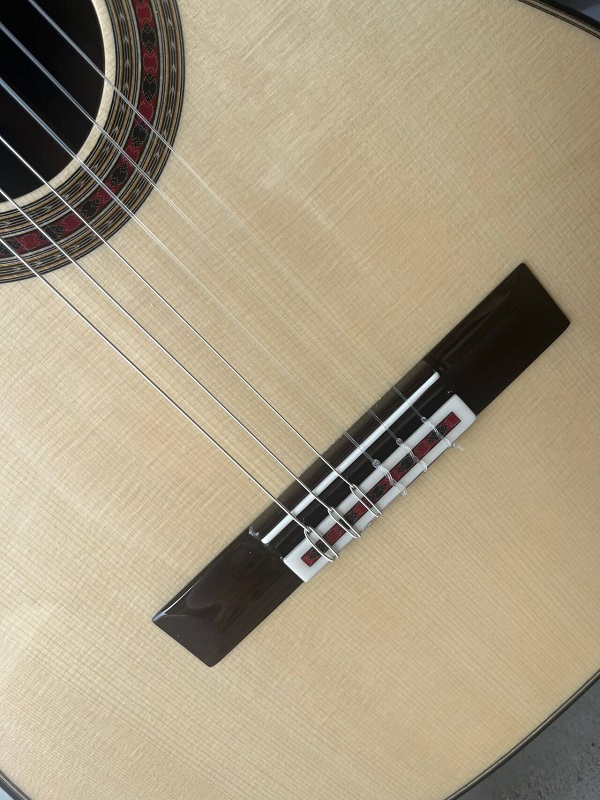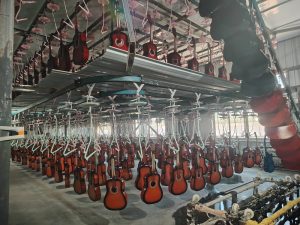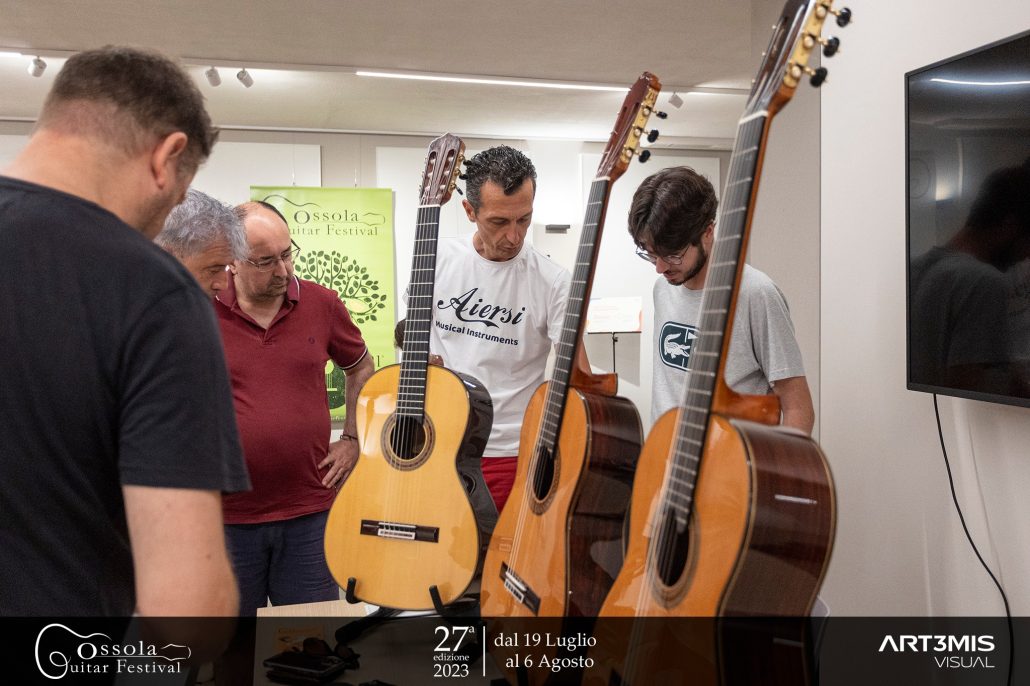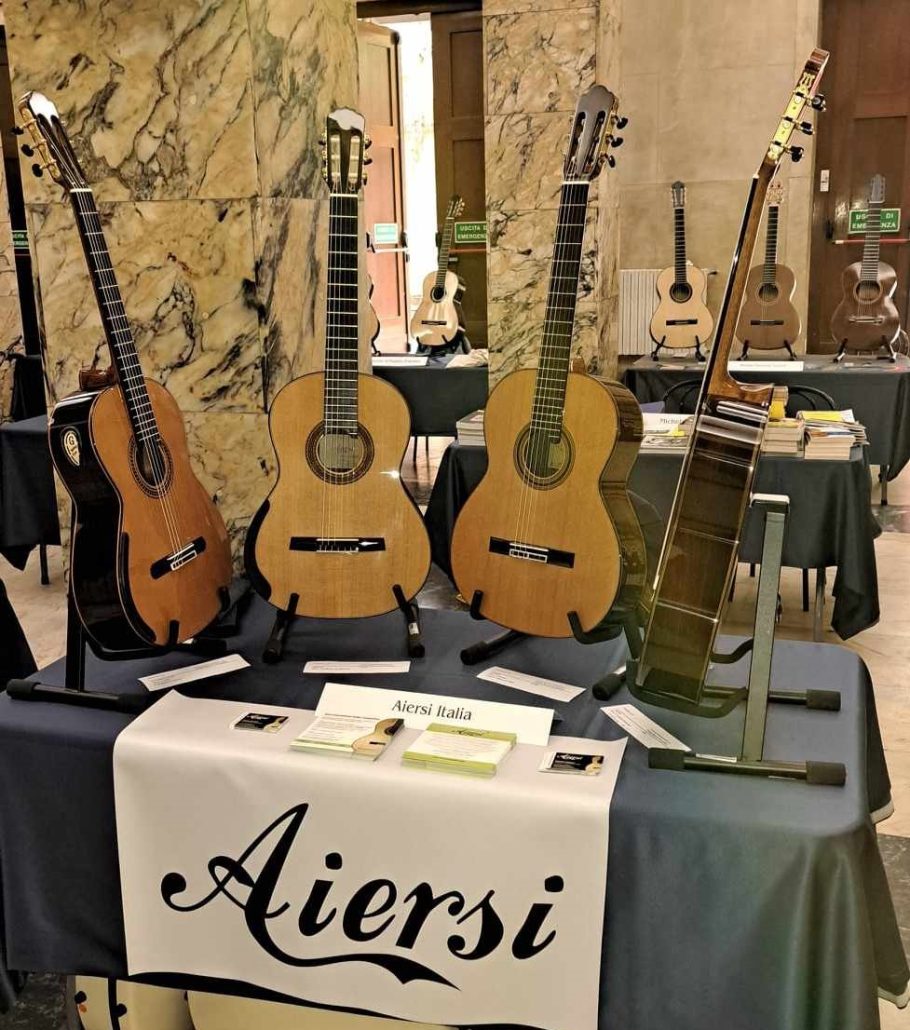
The guitar’s glossy finish has been polished to give it a smooth and beautiful appearance. Similar to the screen of a mobile phone, the surface of a piano, etc. The impression it gives us is that it has a reflective effect. Compared with glossy guitars, matte lacquered guitars lack the polishing process and do not have the reflective effect of mirror gloss. Matte paint is divided into open matte and closed matte. Open matte can clearly see the texture and “pores” of the wood, while closed matte looks like a frosted surface. Friends often ask which kind of paint is better. In fact, it doesn’t matter whether it is good or bad. It depends on personal preference.
1. Process:
Glossy painting
Since bright polish requires one more polishing process than matte polish, the cost will be higher. This may not matter in China, but in developed countries in Europe and the United States, labor is very expensive. For an excellent guitar technician, the salary per hour may be as high as 200. EUR. Therefore, many high-end models of big brands use gloss paint, because doing so will cost more and give people a high-end feel, but in fact it has no practical significance.
2. Sound quality:
This is not directly related to gloss or matte. The thinner the paint, the smaller the suppression of plate vibration, the louder the sound, and the more sensitive the dynamics. The qualitative difference lies in the type and thickness of the paint surface, so there will be a big difference between PU paint and nitrocellulose paint.
matte paint finish
Of course, in theory, the matte paint surface can be made thinner without considering post-polishing. This is why some masters’ guitars are matte. For example, Lowden guitars use matte paint, and some open matte paint even touches the wood. The pores are not filled in, but the plate remains as it is. The resonance performance of bright guitars is slightly inferior to that of matte guitars. The reason is simple. How can the instrument produce the best sound if it is covered with a layer of cloth? The paint itself and the wood have different textures, and the transmission and vibration of sound are out of sync. The thicker the paint, the more severely the sound will be suppressed. The sound of matte guitars is more open and transparent due to the paint surface. Better response
3. Daily maintenance
This is the biggest difference between the two paint finishes. Glossy paint is relatively troublesome. Glossy guitars have a smooth surface, a polished mirror surface, which is easy to leave fingerprints. Long-term use or careless maintenance will leave a lot of fingerprints and sweat greasiness. Frequent wiping is required. Waxing and glazing should be done frequently, otherwise the oils from your body will easily make the paint “foggy” and look dirty. Glossy guitars are also prone to small scratches, which is inevitable. The matte paint surface is easier to take care of, and the surface of the guitar is less likely to be stained by fingerprints and sweat stains, making it more secure and bold when using it. After playing, just wipe it all over with a piano cloth. Do not use wax or polish to maintain the matte paint surface. Of course, if you don’t mind polishing the matte surface into a glossy finish, feel free to do so. In fact, if the humidity is controlled within the range of 40 to 50%, playing the piano every day is the best maintenance. There is no need to deliberately maintain it. Change the strings regularly and wipe off the dirt on both sides of the frets when changing the strings. The foundation of the paint surface lies in the quality of the paint itself. Using nitrocellulose paint, whether it is glossy or matte, can ensure the quality of the paint surface and benefit the vibration of the piano body.
Attached: Four types of paint for guitars
3. Nitrocellulose paint NC has soft gloss, moderate price, soft paint film, and good film fusion, but it requires multiple sprayings and is cumbersome. Martin, Taylor, Eastman, Gibson and other brands commonly use this kind of nitrocellulose paint. The tone is transparent and hardly hinders the vibration of the piano body.
4. Alcohol paint, also called shellac paint SV. The main components of alcohol paint are various natural resins. Most of the natural resins are brittle and hard. In addition, the alcohol solvent is easy to volatilize, so it is not easy to control during operation. The alcohol paint film is very thin but relatively hard, dries quickly, and the piano sound is bright. Mostly used for violins and guitars made with traditional craftsmanship (such as handmade classical guitars, Eastman’s retro series, and some models of Gibson’s vintage series).


















Latest Reviews